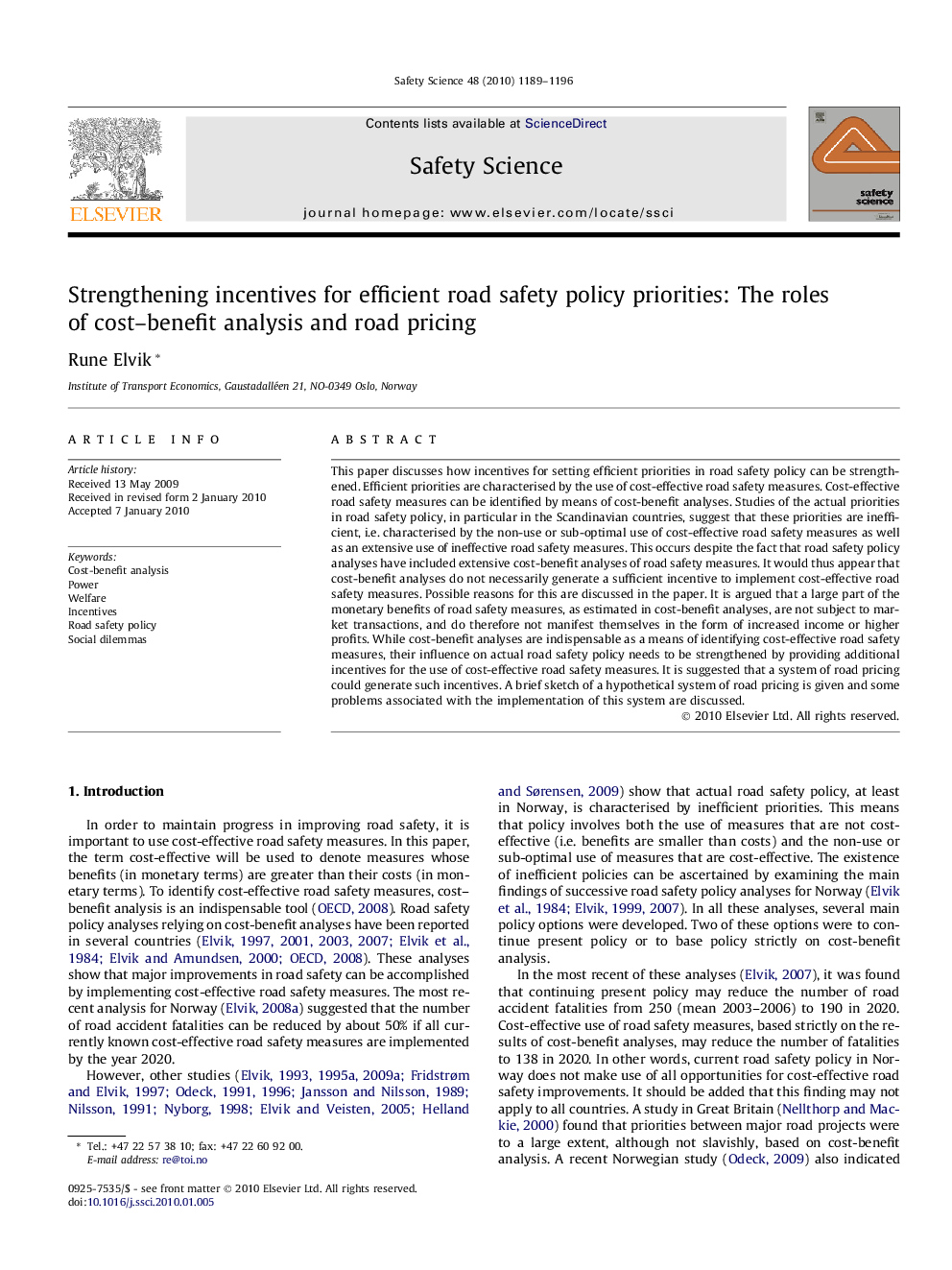| Article ID | Journal | Published Year | Pages | File Type |
|---|---|---|---|---|
| 590238 | Safety Science | 2010 | 8 Pages |
This paper discusses how incentives for setting efficient priorities in road safety policy can be strengthened. Efficient priorities are characterised by the use of cost-effective road safety measures. Cost-effective road safety measures can be identified by means of cost-benefit analyses. Studies of the actual priorities in road safety policy, in particular in the Scandinavian countries, suggest that these priorities are inefficient, i.e. characterised by the non-use or sub-optimal use of cost-effective road safety measures as well as an extensive use of ineffective road safety measures. This occurs despite the fact that road safety policy analyses have included extensive cost-benefit analyses of road safety measures. It would thus appear that cost-benefit analyses do not necessarily generate a sufficient incentive to implement cost-effective road safety measures. Possible reasons for this are discussed in the paper. It is argued that a large part of the monetary benefits of road safety measures, as estimated in cost-benefit analyses, are not subject to market transactions, and do therefore not manifest themselves in the form of increased income or higher profits. While cost-benefit analyses are indispensable as a means of identifying cost-effective road safety measures, their influence on actual road safety policy needs to be strengthened by providing additional incentives for the use of cost-effective road safety measures. It is suggested that a system of road pricing could generate such incentives. A brief sketch of a hypothetical system of road pricing is given and some problems associated with the implementation of this system are discussed.
